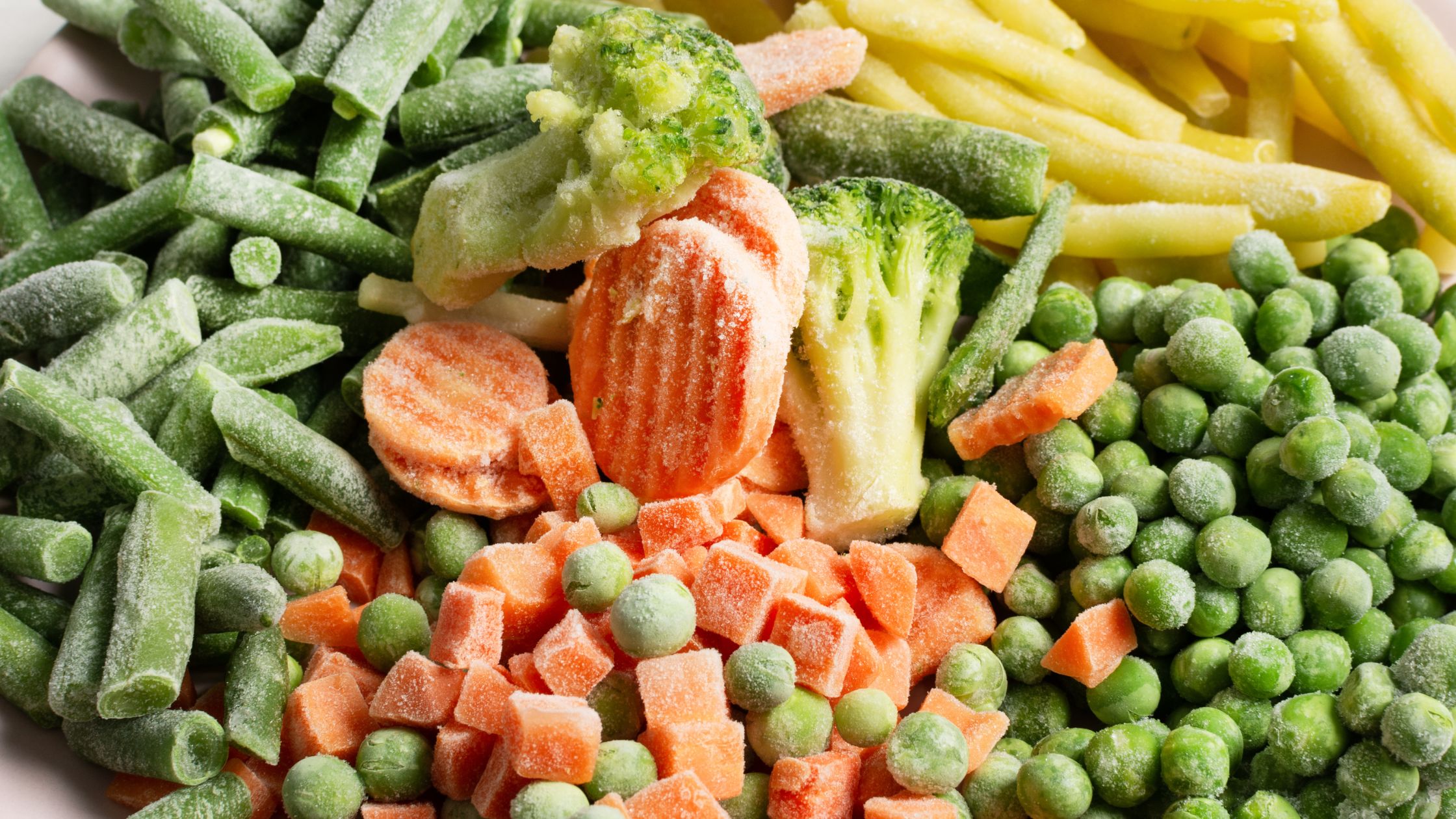With high grocery prices, many of us are searching for the most affordable food and it’s resurged the debate whether you should buy fresh or frozen. We often find ourselves standing in the grocery store aisles, contemplating the pros and cons of each.
Fresh vs Frozen: Which is Better?
Let’s break down what research knows about the nutritional benefits and economic advantages of fresh versus frozen food to help you make an informed choice to nourish yourself and your loved ones.
The Nutritional Value: Fresh or Frozen
All in all, the nutritional content of fresh versus frozen produce is very similar, according to researchers at the University of California-Davis. But, a closer look suggests we might want to change our perception that fresh is better.
What is the Difference Between Fresh and Frozen?
Fresh produce has long been seen as having superior nutritional value. The idea that freshly harvested fruits and vegetables offer more nutrients is ingrained as a principle of healthy eating. However, the actual nutritional content of fresh produce can fluctuate depending on multiple factors, such as the time taken from harvest to consumption and storage conditions. On the other hand, the process of freezing food takes produce harvested at peak ripeness and rapidly freezes it – this effectively preserves the nutrients in the produce.
Are Frozen Vegetables as Healthy as Fresh?
According to researchers, the common belief that fresh food has significantly greater nutritional value than its frozen counterparts may be flawed. Results reported in the Journal of Food Composition and Analysis claim that some frozen fruits and vegetables retain nutrients better than their fresh counterparts due to the preservation process that occurs shortly after harvesting. Meanwhile, many consumers store their fresh produce in refrigerators for days, where the nutritional value of fresh produce declines, according to research.
What Frozen Foods are Actually Healthy?
Frozen fruit and vegetables can be a healthy source of many nutrients. However, the freezing process can cause some fruits and vegetables to experience some nutrient loss, although it’s very minimal. For example, water-soluble vitamins, such as vitamin C, are more susceptible to damage when produce is frozen, while other nutrients, such as vitamin A and fiber, seem to remain fairly stable.
Is Frozen Food Considered Processed?
Not really. Processed foods are those that have been transformed from their original whole-food state, a process that causes nutrient loss. The opposite could be argued about freezing fruits and vegetables – it helps preserve the nutrients! Researchers from the University of California-Davis found that frozen food may contain higher levels of vitamins and antioxidants than fresh vegetables or fruits.
Is Fresh Food More Expensive than Frozen?
A study in the Journal of the Science of Food and Agriculture, reported that frozen vegetables may be cheaper, overall. One can agree the cost of fresh berries can be exorbitant, especially in off-seasons when there are high transportation costs. In those times, frozen berries were the cheaper grocery. However, when seasonal, the cost of local fresh produce can be a great savings!
How to Save Money Buying Fruits and Vegetables:
- Compare Fresh vs Frozen
Since growing conditions are varying dramatically around the world with global warming, the cost of fruits and vegetables can vary, impacting whether fresh and frozen is better. With the high cost of groceries, it’s best to compare your fresh and frozen prices to help you make the most budget-friendly choice.
- Meal Plan
Another money-saving tip is to plan your meals and shop with a list. Fresh produce is prone to costly spoilage – knowing what you’ll use in upcoming meals helps reduce waste. Frozen vegetables have a longer shelf-life, reducing the likelihood of waste. However, since frozen vegetables and fruit lack crispness, they may not be the ideal choice for all recipes.
Is It Best to Eat Fresh or Frozen?
The answer to whether fresh is better than frozen isn’t cut and dry. Both fresh and frozen foods have their merits. But, since the nutritional value and cost-effectiveness of each can fluctuate, choosing one over the other at all times isn’t practical – ultimately urging us to make informed decisions that align with your needs, health, and sustainability goals.
Remember that a balanced diet enriched with fruits and vegetables, regardless of whether they are fresh or frozen, is an important part of a healthy lifestyle. Incorporating both options can provide a wide range of nutrients, and help reduce the cost of groceries while catering to individual needs and preferences.
REFERENCES:
Vitamin retention in eight fruits and vegetables: a comparison of refrigerated and frozen storage. J Agric Food Chem 2015 Jan 28;63(3): 957-62.
Nutritional comparison of fresh, frozen and canned fruits and vegetables. Part 1: Vitamin C and B and phenolic compounds. J Sci Food Agric 2007 Mar 14.
Storage of fruits and vegetables in refrigerator increases their phenolic acids but decreases the total phenolics, anthocyanins and vitamin C with subsequent loss of their antioxidant capacity. Antioxidants (Basel) 2017 Sep; 6(3): 59.
